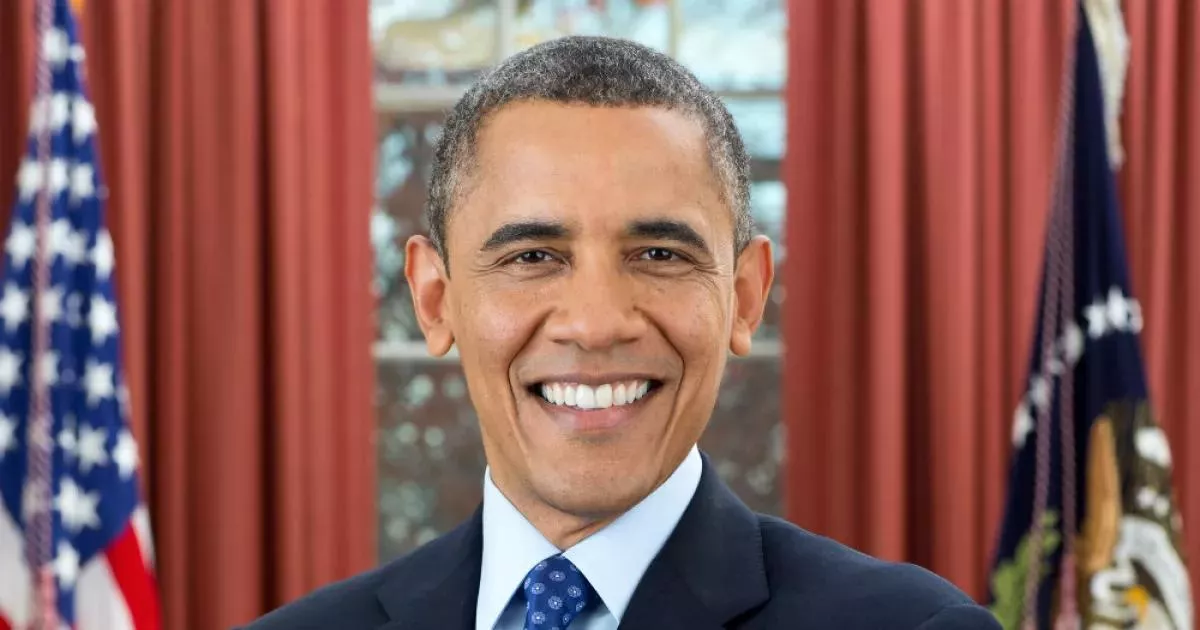A detailed timeline of the impact and legacy of Barack Obama across different fields.
Barack Obama, the 44th U.S. President (2009-2017), was the first African American to hold the office. A Democrat, he served as a U.S. Senator for Illinois (2005-2008) and an Illinois State Senator (1997-2004). His presidency was marked by the Affordable Care Act, the end of the Iraq War, and the killing of Osama bin Laden. Prior to his political career, Obama was a community organizer and civil rights attorney. He is a graduate of Columbia University and Harvard Law School.
1969: United States federal hate-crime law
In 1969, the United States federal hate-crime law was created and later expanded by Obama in 2009 to include crimes motivated by a victim's actual or perceived gender, sexual orientation, gender identity, or disability.
1995: Publication of "Dreams from My Father"
In mid-1995, Obama's memoir "Dreams from My Father" was published.
2007: Discovery of Ancestral Link in Moneygall, Ireland
In 2007, it was discovered that Ann Dunham's great-great-grandfather, Falmouth Kearney, emigrated from the village of Moneygall, Ireland, to the U.S. in 1850.
March 23, 2010: Signing the Affordable Care Act into Law
On March 23, 2010, President Obama signed the Patient Protection and Affordable Care Act (ACA), colloquially known as "Obamacare", into law.
July 2012: Ancestry.com Finds Link to Enslaved African Man
In July 2012, Ancestry.com found a strong likelihood that Ann Dunham, Barack Obama's mother, was descended from John Punch, an enslaved African man who lived in the Colony of Virginia during the seventeenth century.
2015: Brookings Institution rank
In 2015, the Brookings Institution ranked Obama the 18th-greatest American president.
December 2016: Permanent Ban on Offshore Oil and Gas Drilling
In December 2016, President Obama permanently banned new offshore oil and gas drilling in most United States-owned waters in the Atlantic and Arctic Oceans, using the 1953 Outer Continental Shelf Act.
2016: Obama's Regret Over Libya Intervention
In 2016, President Obama said "Our coalition could have and should have done more to fill a vacuum left behind" and that it was "a mess" regarding the Libyan intervention. He stated that the lack of preparation surrounding the days following the government's overthrow was the "worst mistake" of his presidency.
January 2017: Obama leaves office with 60 percent approval rating
In January 2017, Obama left office with a 60 percent approval rating.
2017: Obama Leaves Office
In 2017, Obama left office with high approval ratings.
2018: Obama's Approval Rating in Retrospective Polls
In 2018, retrospective approval polls conducted by Gallup revealed that Obama had a 63 percent approval rating.
2018: Gallup job approval poll
In Gallup's 2018 job approval poll for the past 10 U.S. presidents, Obama received a 63 percent approval rating.
2023: Obama's Approval Rating Remains High in Retrospective Polls
In 2023, Gallup's retrospective approval polls showed that Obama still had a high approval rating of 63 percent.
Mentioned in this timeline

Donald John Trump is an American politician media personality and...

Pope Francis served as the head of the Catholic Church...

Michelle Obama an American attorney and author served as the...

Bill Clinton the nd U S President - served as...

Hillary Diane Rodham Clinton is a prominent American politician lawyer...

John F Kennedy JFK was the th U S President...
Trending

26 minutes ago Clara Tauson Dominates Linette in Dubai, Secures WTA 1000 Quarterfinal Spot

27 minutes ago Pegula Defeats Jovic, Advances to Dubai Quarterfinals; Set to Face Tauson
27 minutes ago Toyota Supra and Lexus LC May Share Platform for Next Generation Models
27 minutes ago Alaska Airlines pilots get shocking pay raises, reshaping network and margins.
28 minutes ago Ramadan 2026 Timetable: Fasting Hours, Suhoor, and Iftar Times Worldwide Confirmed.
1 hour ago Ski Mountaineering to Debut at Milan-Cortina Winter Olympics in 2026.
Popular

Jesse Jackson is an American civil rights activist politician and...
Randall Adam Fine is an American politician a Republican who...

Pam Bondi is an American attorney lobbyist and politician currently...

Barack Obama the th U S President - was the...

Martin Luther King Jr was a pivotal leader in the...

Ken Paxton is an American politician and lawyer serving as...

